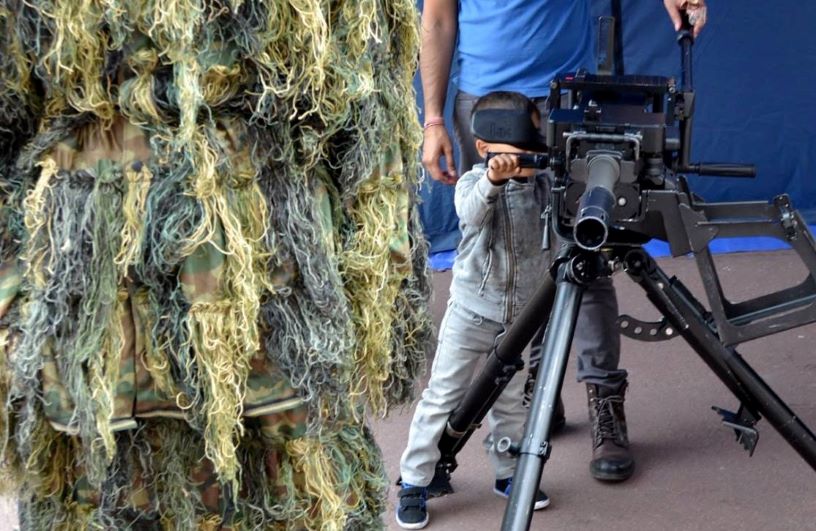Major UN Committee calls for end to UK military recruitment of children
United Nations child rights experts have called on the UK to stop recruiting children into the armed forces.

Quakers in Britain have long called on the UK government to end the practice of recruiting 16-year-olds into the military, a practice shared with only 16 other nations, and none in Europe.
Now, in its latest findings on the UK's implementation of the UN Convention on the Rights of the Child, the United Nations Child Rights Committee has responded to these calls.
It recommends that the UK government raises the age of recruitment to 18 and prohibits targeting of children in military advertising.
Children should not have to serve a minimum period longer than those who enlist as adults and should have the right to leave the armed forces with no notice, the Geneva-based committee said on 2 June.
In its regular review of states party to the Child Rights Convention, the committee also expressed concerns over the impact of the UK's Illegal Migration Bill on children.
Quakers in Britain have called for the bill to be scrapped on the grounds that effectively bans asylum, extinguishing the right to seek refugee protection in the UK.
The Child Rights Committee urged the UK government to repeal draft provisions which would criminalise all asylum-seeking refugee children and prevent unaccompanied children from reuniting with their families.
Other concerns of particular interest to Quakers, with their long-standing involvement in prison reform, surround the UK's criminal justice system.
The Committee said it was “concerned that children as young as 10 or 12 are held criminally responsible, that children who are 16 and 17 years old are not always treated as children […] and that legislation allows for life imprisonment of children."
Quaker concerns for global peace and justice are represented at the United Nations by the Quaker United Nations Office, which celebrates its 75th anniversary this year.
Past successes include putting children with parents in prison on the UN agenda and contributing to the international ban on child soldiers, as well as work on climate change, landmines and peacebuilding.